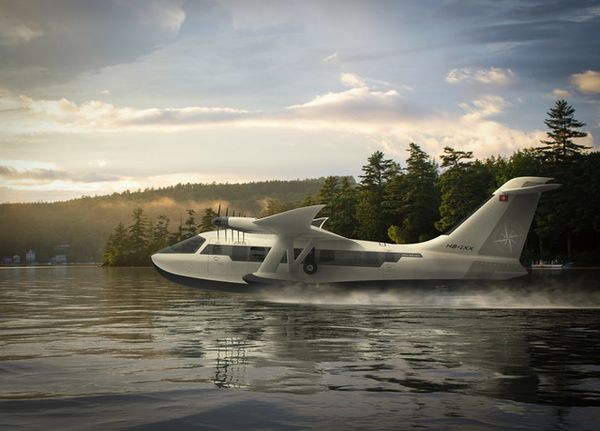In what is a big win for environmentalists hoping to shift the aviation industry towards renewable fuel, Seattle-based Alaska Airlines announced on August 3rd a major new investment in sustainable aviation fuel (SAF). Alaska has partnered with the company Gevo to purchase 185 million gallons of SAF for five years, with deliveries commencing in 2026.

SAF is not a new product for Alaska. For some time now they have been using SAF in their California operations; however, not all flights are powered fully by SAF, as a typical blend consists of 20-50% SAF. Alaska made history in 2016 when they partnered with Gevo to fly a plane from Seattle (SEA) to Washington D.C. (DCA) using a fuel blend of which 20% was made from forest residuals. SAF is quite similar to regular jet fuel with a slightly smaller carbon footprint in its production. Burning the fuel still has the same impacts, but in using materials like forest residuals, SAF is able to reduce carbon production.
While SAF is not the long-term solution to climate change-inducing aspects of the aviation industry, in the near term it allows airlines and aircraft operators to decarbonize while longer-term solutions, such as electric aircraft, can be developed. Adoption of SAF has been relatively slow, in part because the costs of development do inhibit its affordability. With more partnerships and more research on behalf of companies, Gevo does expect that SAF will become far more prevalent and feasible as a medium-term solution in the years to come.

Moreover, among airlines worldwide, Alaska has some of the boldest outlined climate goals—the airline has stated they wish to fully decarbonize by 2040, which would put them 10 years ahead of United Airlines' timeline. As mentioned, SAF doesn't play a significant long-term role in full decarbonization, but will allow for a temporary reduction in emissions while Alaska focuses on long-term emission reduction projects.
Alaska's new alliance, Oneworld, has also announced goals related to SAF. Notably, the alliance has said that member airlines will be decarbonized or carbon neutral by 2050, and that by 2030 member flights will all operate using a fuel blend containing at least 10% SAF. Alaska's deal with Gevo reflects a larger framework outlined by Oneworld members in which the 14 members could work with Gevo to purchase up to 200 million gallons of SAF per year. Given this framework, it is likely that other Oneworld members could announce some sort of partnership with Gevo, though it remains to be seen who will follow suit.

At the end of the day, the airline industry is in a state of constant flux and facing more and more challenges induced by the climate crisis. Alaska and Oneworld's big goals and recent agreements spell hope that the airline industry will make a big push towards decarbonization sooner rather than later.
Should Students Have Homework? Better After-School Balance » Citation C550 Fireball: Greg Biffle and Five Others Killed in Failed Emergency Landing at KSVH » Memphis at Midnight: Inside FedEx's Global Superhub »
Comments (0)
Add Your Comment
SHARE
TAGS
NEWS climate changealaskaoneworldSAFsustainabilityGEVORECENTLY PUBLISHED
 End of an Era: JetBlue's Farewell to the Embraer E190
On September 9, 2025, after nearly two decades of service, JetBlue Airways brought an end to an era with the retirement of its Embraer E190 fleet.
INFORMATIONAL
READ MORE »
End of an Era: JetBlue's Farewell to the Embraer E190
On September 9, 2025, after nearly two decades of service, JetBlue Airways brought an end to an era with the retirement of its Embraer E190 fleet.
INFORMATIONAL
READ MORE »
 Cities in the Sky: The Future Built on eVTOL Flight
Imagine stepping out of your office, walking to a nearby rooftop, and moments later lifting off vertically into the sky — no airport lines, no traffic, just a silent hop across the city. This future is no longer science fiction; it's the foundation of what could be aviation's biggest innovation since the jet age.
INFORMATIONAL
READ MORE »
Cities in the Sky: The Future Built on eVTOL Flight
Imagine stepping out of your office, walking to a nearby rooftop, and moments later lifting off vertically into the sky — no airport lines, no traffic, just a silent hop across the city. This future is no longer science fiction; it's the foundation of what could be aviation's biggest innovation since the jet age.
INFORMATIONAL
READ MORE »
 The Runway is Obsolete: Jekta Swiss is Resurrecting the Flying Boat for the 21st Century
AeroXplorer sat down with George Alafinov, CEO & Co-founder of Jekta Swiss. In conversation, he discussed the company's unique value proposition and how he sees his aircraft revolutionizing the amphibious aircraft industry.
STORIES
READ MORE »
The Runway is Obsolete: Jekta Swiss is Resurrecting the Flying Boat for the 21st Century
AeroXplorer sat down with George Alafinov, CEO & Co-founder of Jekta Swiss. In conversation, he discussed the company's unique value proposition and how he sees his aircraft revolutionizing the amphibious aircraft industry.
STORIES
READ MORE »



